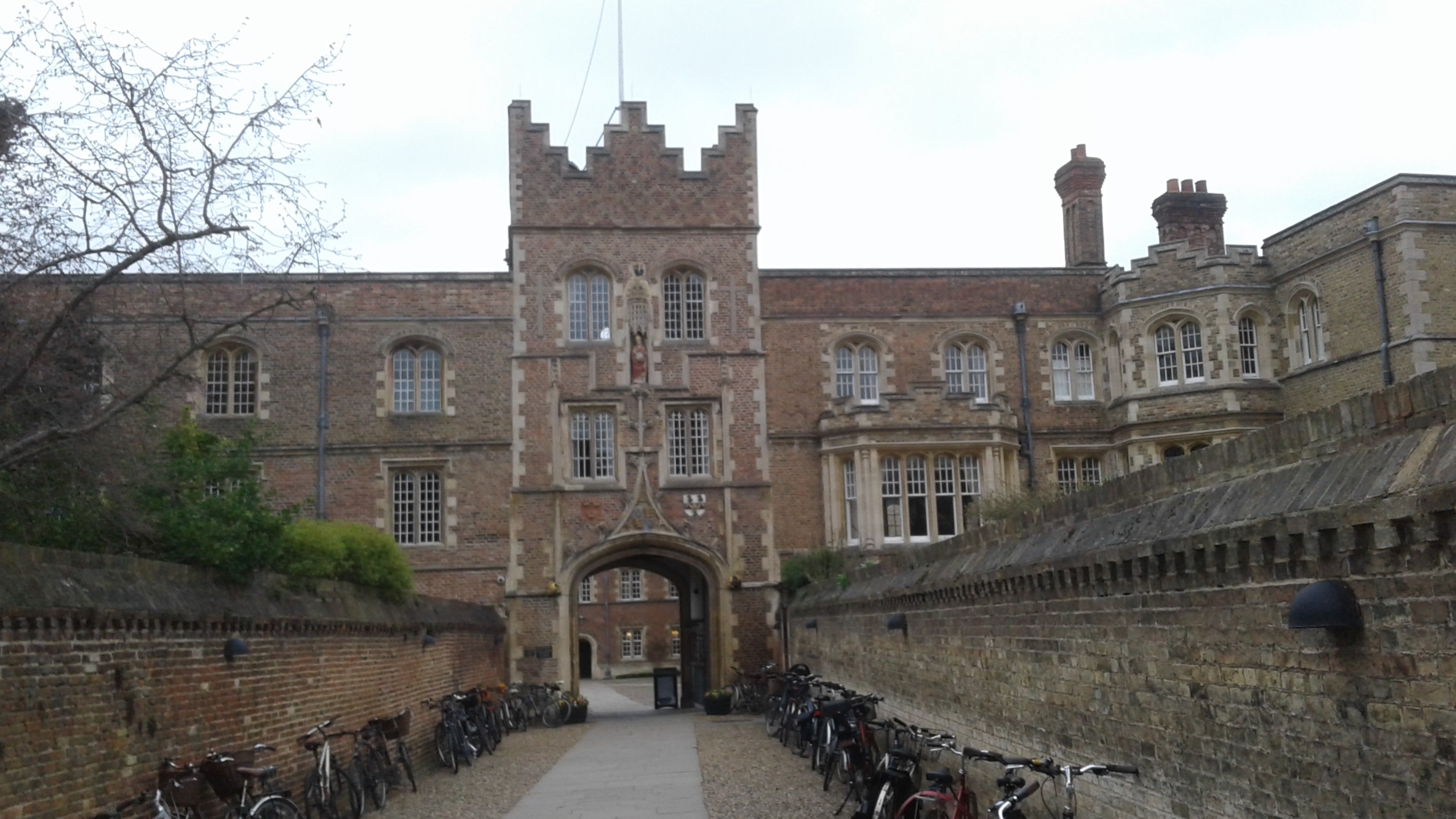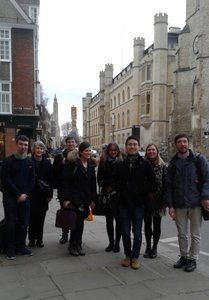Cambridge workshop on Origenism
Four of the ITN ESRs recently participated in a workshop on Religion and Philosophy in Origenism Old and New. Read here their report of their experiences in Cambridge.

Four ESRs, Elisa, Karen, Joshua and Andrea, met recently in Cambridge for a one and a half day workshop titled “Religion and Philosophy in Origenism Old and New.” The workshop, held from 16th to 17th march 2017, was organized by Dr. Christian Hengstermann, University of Cambridge, and gave them the opportunity to interact with other PhD fellows and researchers from around Europe. Together the group represented not only the University of Cambridge but also Oxford and Bristol, and universities from Germany and Italy.

The workshop aimed at fostering a discussion on a variety of topics concerning Origen and Origenism, and it was surprising to see the variety of approaches, methodologies used and the new insights that the participants could exchange with each other. The workshop started with a focused reading and discussion of contemporary approaches to “negative theology” and how this is reflected in Origen’s own theology. Individual talks were then given, and topics ranged from hands-on Origenian exegetic work to discussions on the reception of Origen in the early modern period and in German idealism to early 20th-century theology and finally to contemporary epistemological discussions on theological believing.
Undoubtedly, the beautiful setting of Cambridge and the atmosphere of the University of Cambridge, everywhere to be perceived, gave the workshop a further touch of sacredness, and participants felt encouraged in a little “scholarly marathon”, where even breaks and evening meetings were used to continue conversations or further discuss all the questions concerning the ancient Church Father.
The workshop has once again shown the significance of Origen’s thought throughout the centuries and up to the present time and how Origen is very much alive in contemporary interests in theology, philosophy and history. For us ESRs, the workshop has also meant much in terms of encouragement in our projects as we have experienced how much Origen and Patristics more, in general, are key to research in other circles beside our own and the ITN projects. We also feel now, even more, part of a wider scholarly network on the thought of the Alexandrine and are looking forward to other opportunities like this in the future.
Andrea Bianchi, Elisa Zocchi, Karen Felter